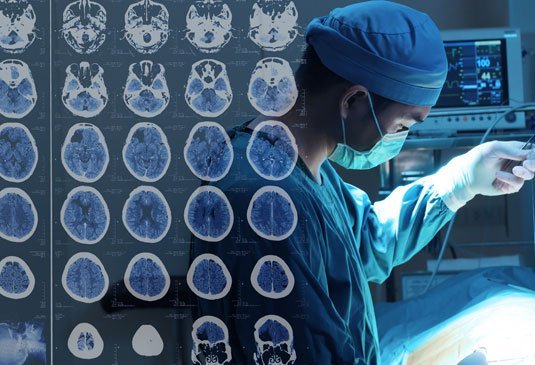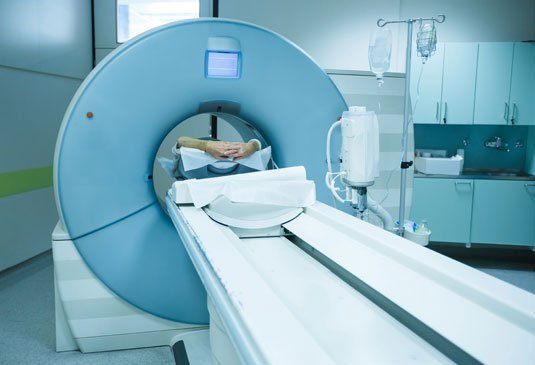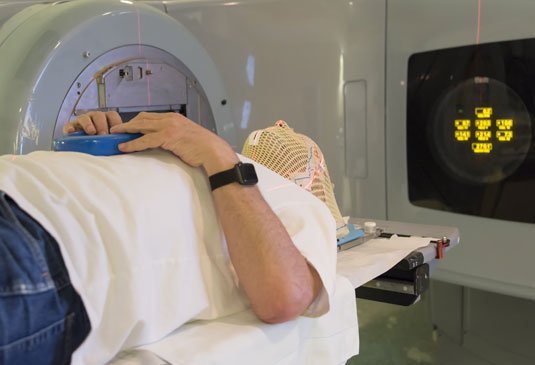Brain tumour clinic
Every 1st & 3rd Tuesday 3 pm to 5 pm
Yashoda Hospitals, Secunderabad
(with prior appointments only)
Brain tumour clinic at Yashoda Hospitals, Secunderabad is an exclusive clinic to provide comprehensive care to brain tumour patients. Integrated treatment is delivered by our multidisciplinary team of specialists across all three phases — preoperative, intraoperative, and postoperative, including recovery and rehabilitation. We aim to provide unmatched expertise for brain tumour treatment at an affordable cost for our patients.
Who is it for?
The clinic is meant to provide comprehensive brain tumour care for patients of all ages and brain cancer of any severity or type. Anyone who suspects brain tumour may visit.
A family history of brain tumours or genetic syndromes may increase the risk of developing a brain tumour.
Any person who experiences persistent symptoms of brain tumour (such as blurred vision or speech difficulties) should also seek medical attention.
What to expect from the clinic?
The brain tumour clinic at Yashoda Hospitals is a multidisciplinary clinic which offers:
- Consultation with a neurosurgeon, medical oncologist, and radiation oncologist in one appointment
- Specialists for both adult brain tumours and pediatric brain tumours
- Subsidized diagnostic procedures
- Free second opinion and advice
- Postoperative rehabilitation
Brain tumour clinic is open every Tuesday in Yashoda Hospitals, Secunderabad from 3-5 pm.

What is brain tumour?
The growth of abnormal cells in the brain is known as brain tumor. It can be either benign (noncancerous) or malignant (cancerous). Brain tumours vary greatly based on their location. Thus, their symptoms, growth rate, and the manner in which they affect the central nervous system (CNS) also differs.
What are the types of brain tumours?
Brain tumours are classified based on their origins from the different types of cells in the brain and the central nervous system (CNS). A few types are:
- Gliomas: These tumours arise from the glial cells and are the most fast-growing brain tumours. Some of them are astrocytomas and oligodendrogliomas.
- Adenomas or brain tumours of glands: Tumours may also arise from the glands in the brain such as the pituitary gland (pituitary adenoma) or pineal gland (eg. pineoblastoma).
- Meningiomas or meningeal tumours: These tumours arise in the meninges, a protective layer of tissue over the brain and the spinal cord. They are the most common brain tumours in adults accounting for 1 out of 3 primary brain and spinal cord tumours.
- Schwannomas: These tumours arise from the Schwann cells (of the cranial nerves). When they affect the cranial nerve responsible for hearing and balance, they are called vestibular schwannomas or acoustic neuromas.
Craniopharyngiomas, germ cell tumours, Glioblastomas, chordomas, CNS lymphomas, etc. are some other types.
Treatment for brain tumours depends largely on type, grade (or stage) and location of the tumour. Treatment for pediatric brain tumours is also different from that for adult brain tumours. Our clinic has specialists who are experienced in dealing with all types of brain tumours.
What are the symptoms of brain tumour?
Symptoms of the brain tumour depend on the affected area in the brain and its functions. Not every patient experiences the same symptoms, and some may not experience any until the tumour grows too large and leads to a general decline in health.
Some of the symptoms are:
- Change in speech or hearing
- Personality changes
- Numbness in the limbs
- Seizures
- Blurred vision
- Frequent confusion
- Difficulty with balancing
- Unexplained nausea
- Persistent headache that does not respond to medication
How is brain tumour diagnosed?
The multidisciplinary team will evaluate the patient’s medical and family history to evaluate the possibility of brain tumour. If it is suspected, the following tests may be required for accurate brain tumour diagnosis:
- A neurological exam
- Imaging tests: X-Ray, MRI, CT, PET scan.
- Biopsy of the brain

What is the best brain tumour treatment available in Hyderabad?
The Brain Tumour Clinic in Yashoda Hospitals, Secunderabad provides comprehensive treatment using the latest technologies. The neurosurgeon will suggest the most effective treatment option based on the size, type, and stage of the tumour.
- Surgery is the most common option to remove brain tumour.
- Chemotherapy and radiation therapy: May be used in isolation or combined with surgery.
- Stereotactic radiosurgery for deep-seated tumours.
- Advanced intraoperative 3T MRI (iMRI): The first of its kind in India, it removes brain tumours with the highest accuracy without the need for additional surgeries.
- State-of-the-art Intra-Operative Neuro-Monitoring (INOM) for successful surgeries and improved performance.

Team of best neurosurgeons and neuro oncologists at Brain Tumour Clinic,
Yashoda Hospitals, Secunderabad
Yashoda Institute of Neuroscience has a team of leading neurosurgeons from across India who specialize in diagnosing and treating brain tumour. They work in collaboration with medical neuro oncologists, radiation oncologists, and neuro anesthetists to provide comprehensive care to the patients.
Their skills are complemented by advanced equipment, including RapidArc Linear Accelerators, intraoperative 3T MRI, and Intraoperative Neuromonitoring. This maximizes the benefits for the patients by eliminating the need for additional surgeries, reducing the risk of complications, and improving the outcomes of treatment.










